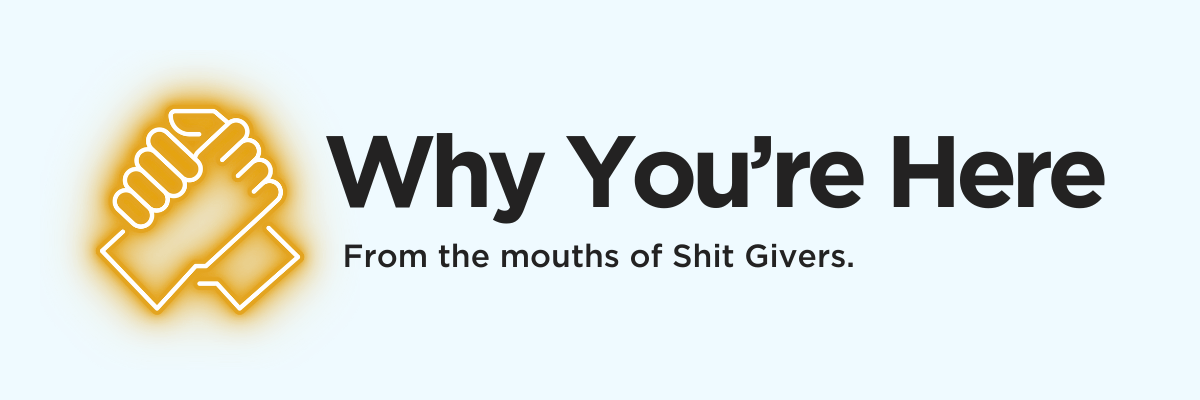- Important, Not Important
- Posts
- Billions For Green Banks
Billions For Green Banks
Plus: advanced recycling, earthquake preparedness, and dark energy

Welcome to the week.
Anyone see/going to see the solar eclipse today? If you want more space stuff, check out Friday’s guest essay by space reporter Swapna Krishna!
And then let’s get to the news.
This week:
🌴Slowing deforestation in the Amazon
🩺Palliative care
🌊Water levels in the Panama Canal
🌐 Net neutrality
And more
Have a great week,
— Willow
This is science for people who give a shit.
Every week, we help 28,000+ humans understand and unfuck the rapidly changing world around us. It feels great, and we’d love for you to join us.
🙋♀️ Vote!
In last week’s poll, 88% of you said yes, there should be national standards for indoor and outdoor air quality.
This week, we’re wondering:
What does your household do with food waste?Food waste makes up half of the emissions from the global food system |
🤝 Support Our Work
We’re 100% independent and supported by readers like you.
Upgrade today and get:
Vibe Check: Our news homepage, curated daily just for you. Never doomscroll again
Half Baked: Weekly briefs to help you think and act on specific, timely issues as they happen
The Thunderdome: Join us on INI Slack to connect, build, and share dog pics
Lifetime thanks for directly supporting our work

⚡️ Climate change:
The Biden Administration is awarding $20 billion in funding for green banks to finance climate mitigation and adaptation projects
🌏️ Although global rates of deforestation remain high, new protections in Brazil and Colombia are slowing deforestation of the Amazon
Humans have faced a changing climate before. What can we learn about weathering change from the humans who lived through the Little Ice Age?
🌍️ The EU’s $40 billion Innovation Fund is attempting to scale climate solutions and has had some early setbacks that must not become widespread trends
🦠 Health & Bio:
Colorectal cancer is increasing in people under 50 — genetics certainly play a role, as do diet and lifestyle, but experts are starting to investigate other potential environmental drivers
Palliative care can be life-changing for people with chronic health conditions (150 million in the US), and also ultimately save the healthcare system a lot of money
Big brands have promised to switch all their products to recyclable plastics using “advanced recycling” which has yet to deliver results
🌍️ Owning the right pair of reading glasses can help people over 35 in low and middle-income countries increase their income by a third
💦 Food & Water:
AI is helping grocery stores and restaurants reduce food waste
🌍️ Water levels in the Panama Canal will take the rest of the year to recover from last year’s drought
🌍️ 80% of agricultural subsidies in the EU support meat and dairy rather sustainable alternatives
🌍️ A cyclone in Madagascar threatens the vanilla harvest for 2024
👩💻 Beep Boop:
🌍️ Taiwan has preparation for major earthquakes has paid off, saving many lives, and also the global tech economy
The FCC has voted to restore net neutrality rules
An independent review of Microsoft after the Chinese hack last year is criticizing the company for poor cybersecurity practices
Google Books is including AI-generated content, potentially undermining its reliability and usefulness
🌎️ = Global news

John Green is the Ultimate TB Fighter

New Shit Giver Alastair wants to help solve “the loneliness epidemic - both for adults and for the youth, while we can.“
Community is everything. Check out the resources below to take action on mental health. Let’s go

Last week’s most popular Action Step was learning about the water scarcity crisis by following Circle of Blue.
Donate to the Steve Fund to support the mental health of young people of color.
Volunteer to support the development of medical, legal, and cultural contexts for people to benefit from psychedelic treatment with MAPS.
🌏️ Get educated about resources for dealing with eco-anxiety and turning it into action with Eco-Anxious Stories.
Be heard about mental health and urge your representative to take action against the mental health crisis.
Invest in companies that align with your values using fennel.
🌎️ = Global Action Step


What have we learned from millennia of water insecurity, of climate changes and disasters, of building along freshwater ways and the ocean, that we can apply today?
That's today's big question, and my guest is Dr. Amber Wutich.
Dr. Wutich is an ASU President's Professor, Director of the Center for Global Health, and 2023 MacArthur Fellow.
She's an expert on water insecurity and directs the Global Ethnohydrology Study, a cross-cultural study of water knowledge and management in over 20 countries.
Dr. Wutich’s two decades of community-based field work explore how people respond individually and collectively to extremely water-scarce conditions. She leads the NSF Action for Water Equity, a participatory convergence study that develops collaborative water solutions with water-insecure U.S. communities. Her teaching has been recognized with many awards, including the Carnegie Case Arizona Professor of the Year.
As maybe the most important thing that neither you nor I can live without, water is both becoming more scarce in Central America, Northern India, Syria, and other places, and more prevalent through sea level rise, flooding and storms where we're not ready for it.
📖 Prefer to read? Get the transcript here

More space content! 👇️





Reply